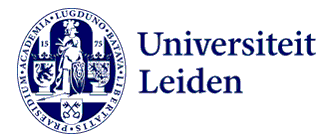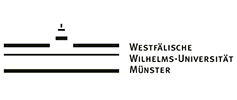Indonesia’s Judicial Review Regime in Comparative Perspective
Abstract
Keywords
Full Text:
PDFReferences
Aspinall, Edward. "Twenty Years of Indonesian Democracy: How Many More?" http://www.newmandala.org/20-years-reformasi/.
Atiyah, Patrick S, and Robert S. Summers. Form and Substance in Anglo-American Law: A Comparative Study of Legal Reasoning, Legal Theory, and Legal Institutions. Oxford: Clarendon Press, 1987.
Austin, Granville. Working a Democratic Constitution: A History of the Indian Experience. New Delhi: Oxford University Press, 1999.
Bánkuti, Miklós, Gábor Halmai and Kim Lane Scheppele. "Hungary's Illiberal Turn: Disabling the Constitution." Journal of Democracy 23 no. 3 (2012): 138-46.
Baxi, Upendra. The Indian Supreme Court and Politics. Lucknow: Eastern Book Co, 1980.
Bhuwania, Anuj. Courting the People: Public Interest Litigation in Post-Emergency India. Cambridge: Cambridge University Press, 2017.
Butt, Simon. The Constitutional Court and Democracy in Indonesia. Leiden: Brill Nijhoff, 2015.
Butt, Simon and Tim Lindsey. The Constitution of Indonesia: A Contextual Analysis. Oxford: Hart Publishing, 2012.
Dressel, Bjoern and Tomoo Inoue. "Megapolitical Cases before the Constitutional Court of Indonesia since 2004: An Empirical Exploration." Unpublished paper presented at the 2nd Indonesian Constitutional Court International Symposium on the "Constitutional Court and Constitutionalism in Political Dynamics," Yogyakarta, 1-3 October 2018.
Fiss, Owen M. "The Right Degree of Independence." In Transition to Democracy in Latin America: The Role of the Judiciary, edited by Irwin P. Stotzky, 55-72. Boulder, CO: Westview Press, 1992.
Foulkes, Albert S. "On the German Free Law School (Freirechtsschule)." Archiv für Rechts- und Sozialphilosophie /Archives for Philosophy of Law and Social Philosophy 55, no. 3 (1969): 367-417.
Gibson, James L, and Gregory Caldeira. "Has Legal Realism Damaged the Legitimacy of the U.S. Supreme Court?" Law & Society Review 45, no. 1 (2011): 195-219.
Gillman, Howard. The Constitution Besieged: The Rise and Demise of Lochner Era Police Powers Jurisprudence. Durham, NC: Duke University Press, 1993.
Gordon, Robert W. "Legal Thought and Legal Practice in the Age of American Enterprise, 1870-1920." In Professions and Professional Ideologies in America, edited by Gerald L Geison, 70-82. Chapel Hill: University of North Carolina Press, 1983.
Grechenig, Kristoffel and Martin Gelter. "The Transatlantic Divergence in Legal Thought: American Law and Economics vs. German Doctrinalism." Hastings International and Comparative Law Review 31 no. 1 (2008): 295-360.
Grey, Thomas C. "Langdell's Orthodoxy." University of Pittsburgh Law Review 45 (1983): 1-53.
Hailbronner, Michaela. Traditions and Transformations: The Rise of German Constitutionalism. Oxford: Oxford University Press, 2015.2
Halliday. Terence C. and Lucien Karpik. "Political Liberalism in the British Post-Colony: A Theme with Three Variations." In Fates of Political Liberalism in the British Post-Colony: The Politics of the Legal Complex, edited by Terence C. Halliday, Lucien Karpik and Malcolm Feeley, 3-55. Cambridge: Cambridge University Press, 2012.
Hendrianto, Stefanus. "The Indonesian Constitutional Court at a Tipping Point." International Journal of Constitutional Law Blog (October 3, 2013), http://www.iconnectblog.com/2013/10/the-indonesian-constitutional-court-ata=tipping-point.
Hendrianto, Stefanus. Law and Politics of Constitutional Courts: Indonesia and the Search for Judicial Heroes. London: Routledge, 2018.
Holmes, Stephen. "Judicial Independence as Ambiguous Reality and Insidious Illusion." In From Liberal Values to Democratic Transition: Essays in Honour of János Kis, edited by Ronald Dworkin, 3-12. Budapest: Central European University Press, 2004.
Horowitz, Donald L. Constitutional Change and Democracy in Indonesia. Cambridge: Cambridge University Press, 2013.
Horwitz, Morton J. The Transformation of American Law, 1870-1960: The Crisis of Legal Orthodoxy. New York: Oxford University Press, 1992.
Kennedy, Duncan. "Toward an Historical Understanding of Legal Consciousness: The Case of Classical Legal Thought in America, 1850-1940." Research in Law and Sociology 3 (1980): 3-24.
Kennedy Duncan. A Critique of Adjudication (Fin de Siècle). Cambridge, MA: Harvard University Press, 1997.
Law, David S and Mila Versteeg. "The Evolution and of Global Constitutionalism." California Law Review 99, no. 5 (2011): 1163-1257.
Lev, Daniel S. "Judicial Authority and the Struggle for an Indonesian Rechtsstaat." Law and Society Review 13, no. 1 (Autumn 1978) 37-71.
McCloskey, Robert G. The American Supreme Court. 4th ed revised by Sanford Levinson, Chicago: University of Chicago Press, 2005.
Mietzner, Marcus. "How Jokowi Won and Democracy Survived." Journal of Democracy 25, no. 4 (2014): 111-25.
Mietzner, Marcus. "Fighting Illiberalism with Illiberalism: Islamist Populism and Democratic Deconsolidation in Indonesia." Pacific Affairs 91, no. 2 (2018) 261-82.
Moustafa, Tamir and Tom Ginsburg. "Introduction: The Functions of Courts in Authoritarian Politics." in Rule by Law: The Politics of Courts in Authoritarian Regimes, edited by Tom Ginsburg and Tamir Moustafa, 1-22. New York: Cambridge University Press, 2008.
Nonet, Phillippe and Philp Selznick. Toward Responsive Law: Law & Society in Transition. New Brunswick, NJ: Transaction Publishers, 2001.
Pompe, Sebastiaan. The Indonesian Supreme Court: A Study of Institutional Collapse. Ithaca, NY: Cornell Southeast Asia Program Publications, 2005.
Posner, Richard A. "What Has Pragmatism to Offer Law?" Southern California Law Review 63 (1990): 1653-70.
Pound, Roscoe. "Mechanical Jurisprudence." Columbia Law Review 8 (1908): 605-23.
Rajah, Jothie. Authoritarian Rule of Law: Legislation, Discourse and Legitimacy in Singapore. New York: Cambridge University Press, 2012.
Roux, Theunis. "Transformative Constitutionalism and the Best Interpretation of the South African Constitution: A Distinction without a Difference?" Stellenbosch Law Review 20, no. 2 (2009): 258-85.
Roux, Theunis. "The South African Constitutional Court's Democratic Rights Jurisprudence: A Response to Samuel Issacharoff." Constitutional Court Review 5 (2014): 33-73.
Roux, Theunis. The Politico-Legal Dynamics of Judicial Review: A Comparative Analysis. New York: Cambridge University Press, 2018.
Roux, Theunis and Fritz Siregar. "Trajectories of Curial Power: The Rise, Fall and Partial Rehabilitation of the Indonesian Constitutional Court." Australian Journal of Asian Law 16, no. 2 Article 2 (2016): 1-21.
Satrio, Abdurrachman. "Constitutional Retrogression in Indonesia under President Joko Widodo's Government: What Can the Constitutional Court Do?" Unpublished paper presented at the 2nd Indonesian Constitutional Court International Symposium on the "Constitutional Court and Constitutionalism in Political Dynamics." Yogyakarta, 1-3 October 2018.
Schauer, Frederick. "Foreword." In William Twining, Karl Llewellyn and the Realist Movement 2ed, Cambridge: Cambridge University Press, 2012.
Shapiro, Martin. Courts: A Comparative and Political Analysis. Chicago: University of Chicago Press, 1986.
Siregar, Fritz Edward. "Indonesian Constitutional Politics: 2003–2013." Doctoral dissertation., UNSW Sydney, 2016.
Summers, Robert S. "Pragmatic Instrumentalism in Twentieth Century American Legal Thought – A Synthesis and Critique of our Dominant General Theory about Law and its Use." Cornell Law Review Vol 66, (1981): 861-948.
Tamanaha, Brian Z. Beyond the Formalist-Realist Divide: The Role of Politics in Judging. Princeton, NJ: Princeton University Press, 2010.
Trubek, David M. "Complexity and Contradiction in the Legal Order: Balbus and the Challenge of Critical Social Thought about Law/" Law & Society Review 11 (Winter 1977): 529-69.
Tushnet, Mark. Weak Courts, Strong Rights: Judicial Review and Social Welfare Rights in Comparative Constitutional Law. Princeton, NJ: Princeton University Press, 2008.
Weber, Max. Economy and Society Vol 1, edited by Guenther Roth and Claus Wittich. Berkeley: University of California Press, 1968.
DOI: https://doi.org/10.31078/consrev422
Article Metrics
Abstract view : 1973 timesPDF view : 1033 times
Refbacks
- There are currently no refbacks.
Copyright (c) 2018 Constitutional Review

























































